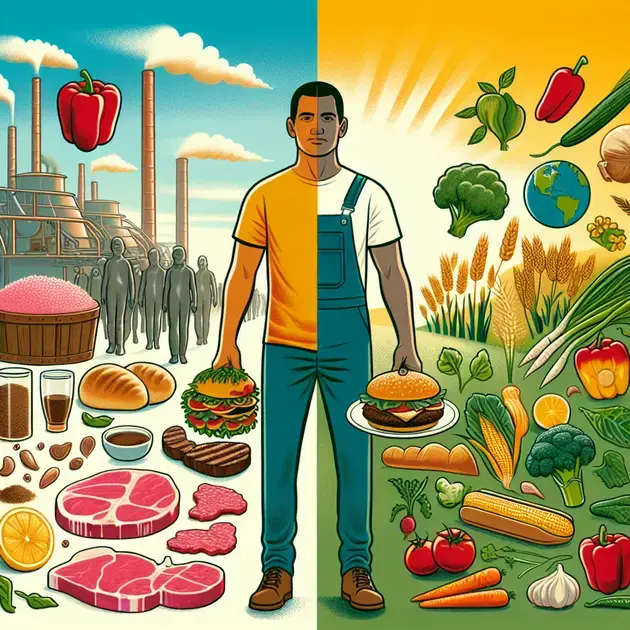Shifting our Diets to Address Climate Change and Food Insecurity
Shifting our diets to be more sustainable presents a significant opportunity for individuals to contribute to both tackling climate change and global food insecurity. However, implementing these changes on a large scale, which is necessary to have a global impact, can be a complex and sensitive issue.
Climate change has been recognized as one of the greatest threats facing our planet. It is caused primarily by the emission of greenhouse gases, primarily through the burning of fossil fuels and deforestation. However, what is often overlooked is the significant contribution of the agricultural sector, particularly livestock production, to greenhouse gas emissions. Animal agriculture not only contributes to deforestation but also releases methane, a potent greenhouse gas, during digestion processes.
Considering global food insecurity, it is estimated that around 9.2% of the world’s population suffers from chronic undernourishment. This issue is exacerbated by various factors, including population growth, limited access to resources, and food waste. By shifting our diets to be more sustainable, we can address these interconnected problems.
Adopting a more sustainable diet involves reducing the consumption of resource-intensive foods, such as red meat, and increasing the intake of plant-based alternatives. Plant-based diets not only have lower carbon footprints but also require less land, water, and energy to produce. By making these dietary adjustments, we can significantly reduce greenhouse gas emissions and free up resources for food production, therefore contributing to both climate change mitigation and food security.
However, implementing these dietary shifts on a global scale can be challenging. Dietary choices are deeply ingrained in cultural practices, and resistance to change can be expected. Additionally, access to affordable and nutritious plant-based alternatives may not be readily available in all regions, particularly in lower-income countries. Furthermore, governments and policymakers must prioritize sustainable agriculture and support farmers in transitioning to more sustainable practices.
To address these challenges, a multi-faceted approach is required. Greater awareness and education around the environmental and health benefits of sustainable diets can help individuals make informed choices. Collaboration between governments, the private sector, and civil society is crucial in creating supportive policies and incentives for sustainable agriculture and food production. Investments in research and development can also contribute to the development of innovative and accessible plant-based alternatives.
In conclusion, shifting our diets to be more sustainable presents an impactful solution to tackle climate change and global food insecurity. However, implementing these changes on a large scale requires addressing cultural, economic, and logistical challenges. By working together, we can create a more sustainable and secure future for all.
